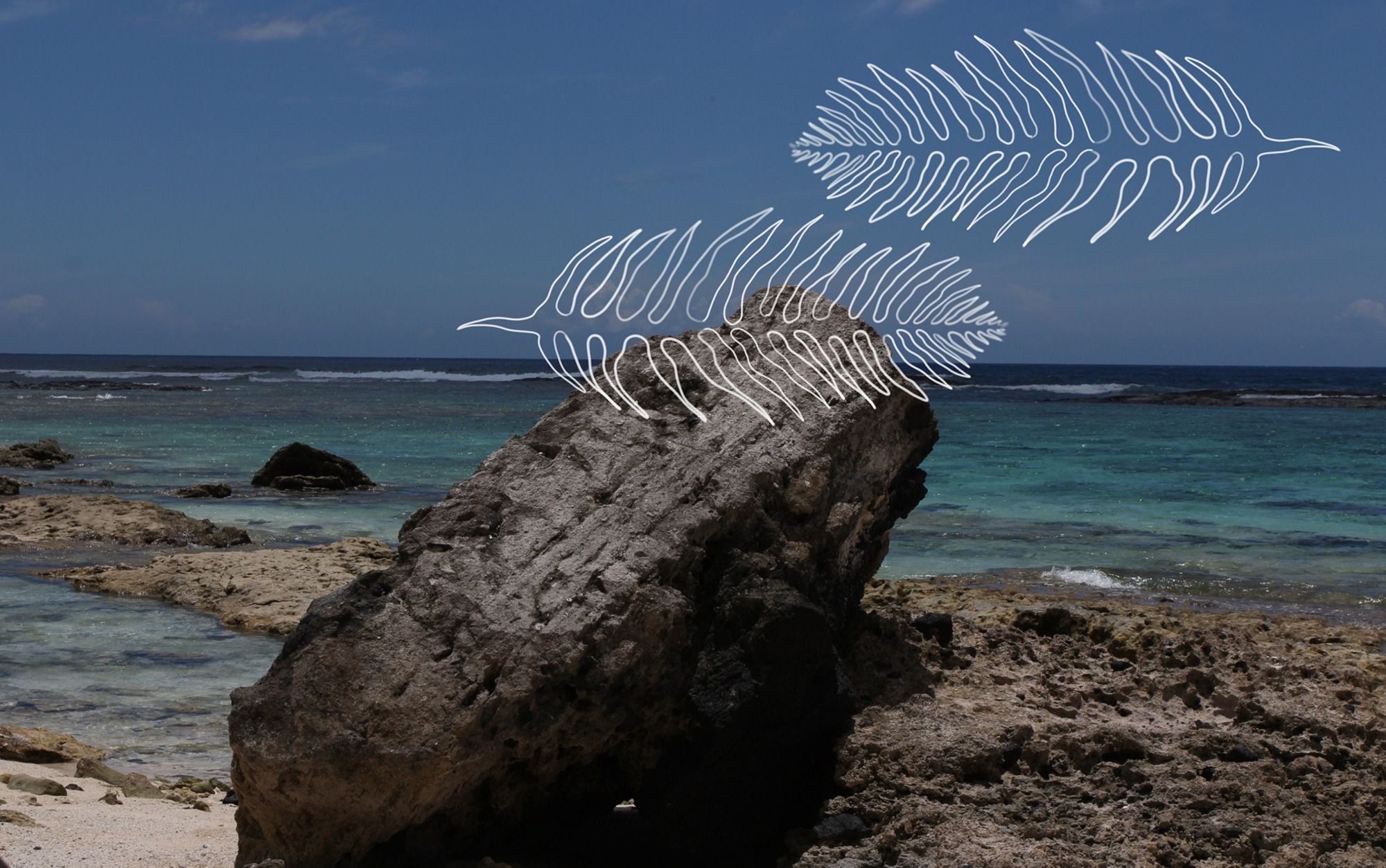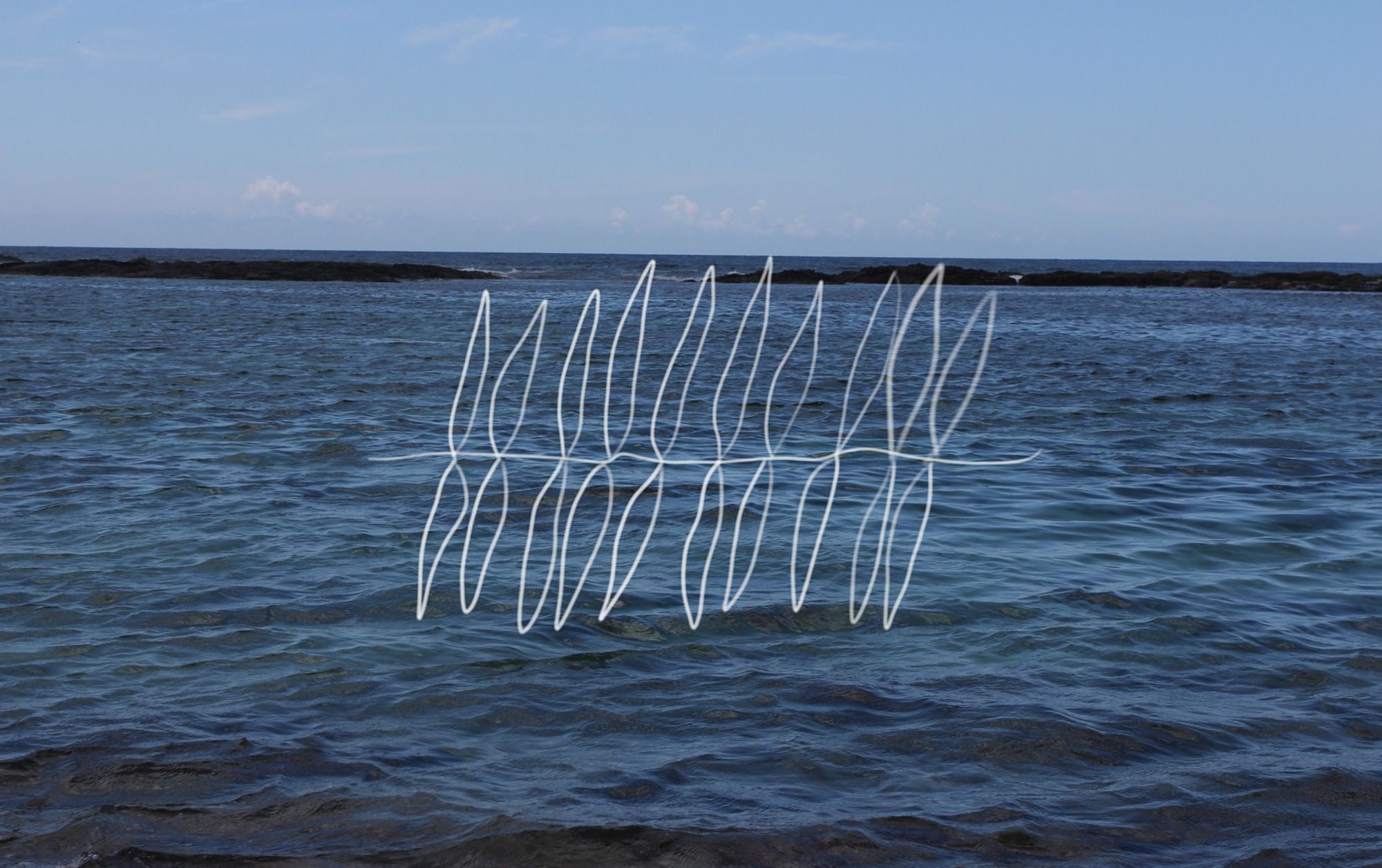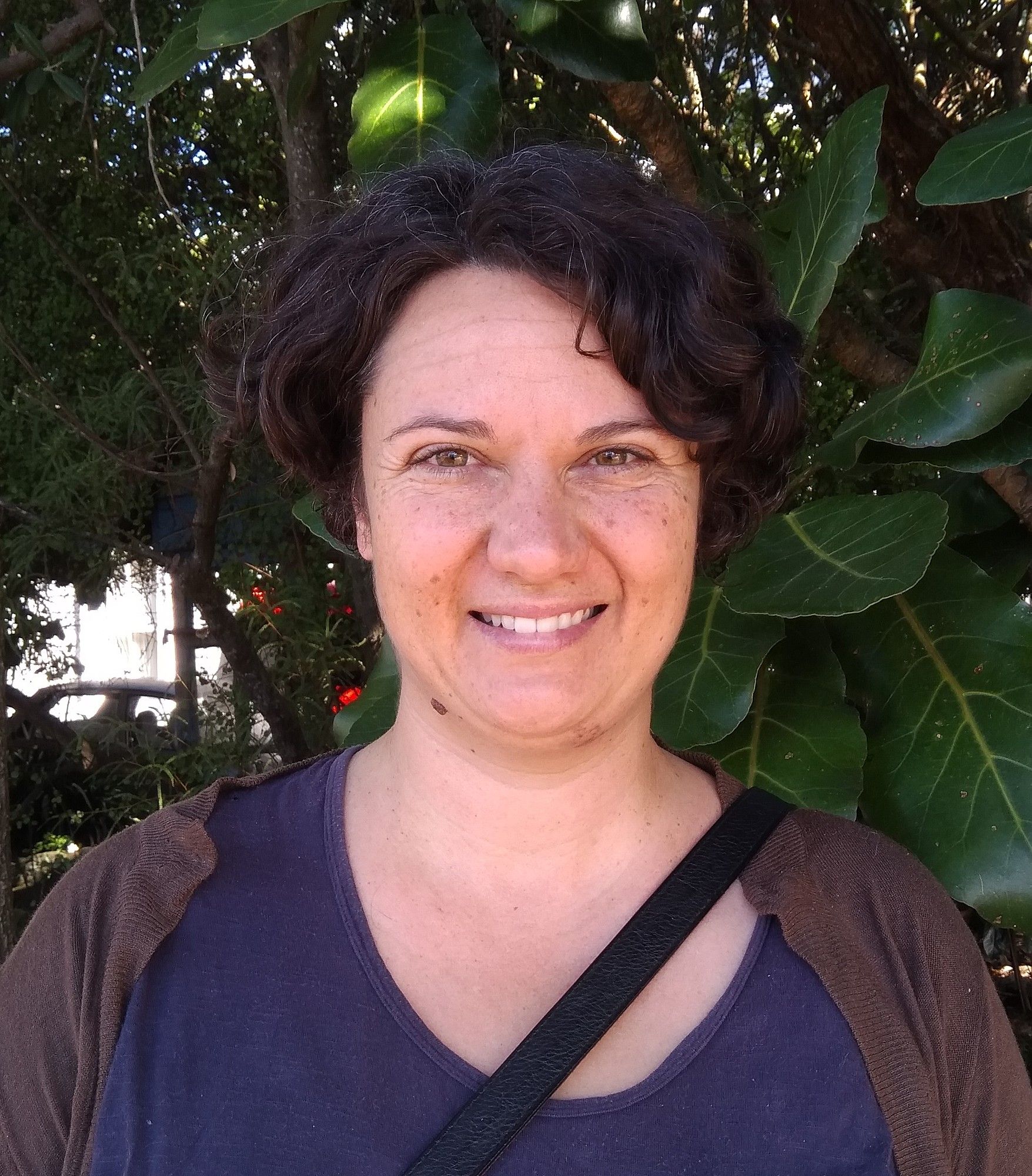Imagine a Bookcase, Full of Moana Writers
Ahead of the inaugural Flying Fetu festival, Tulia Thompson interviews Co-Directors Grace Teuila Iwashita-Taylor and Lana Lopesi on creating dedicated space for Moana writing.
Imagine a tall, wooden bookshelf, in a dining room. Maybe there is a bright red hibiscus, a photo of your uncle in his pink sulu and bula shirt, the string of shells you brought back from your last visit home. There are books – Grace Iwashita-Taylor’s Afakasi Speaks, Albert Wendt’s Sons for the Return Home, and Va: Stories by Women of the Moana. Every bright-yellow spine, every thin journal, every fat tome is written by a writer from the Moana – authors like Courtney Sina Meredith, Lana Lopesi, and Lani Wendt Young. There are also books you can’t yet envision, but are hungry for. A whole bookcase of Moana writers writing about everything.
“I want that whole bookcase to be full of our books. I want to read all of our stories,” says Sāmoan writer and art critic Lana Lopesi, who believes that it’s possible.
“I want that whole bookcase to be full of our books. I want to read all of our stories”
Flying Fetuis a writers’ festival aimed at amplifying vibrant communities and futures for artists of upu (word), running at Basement Theatre in Tāmaki Makaurau on 4 and 5 November. The project is a creative collaboration between Lopesi and Grace Teuila Iwashita-Taylor. Poet and playwright Iwashita-Taylor is the author of two powerful poetry collections, Afakasi Speaks (2013) and Full Broken Bloom (2017), and a one-woman show, My Own Darling. Lopesi herself has worked extensively across arts writing, and isthe author of False Divides (2018) and a brilliant book of essays called Bloody Woman (2021). The ticketed programme includes a full day of talanoa by Moana writers on topics that feel both critical and exhilarating. The festival opens with a writers’ lab showcase, to celebrate the 12 Moana writers invited to create fresh new work for the festival.
Commissioned article illustration by Ashleigh Taupaki.
The idea for the festival ignited after Iwashita-Taylor got tired of feeling “hella exhausted” by the structural racism within the writing community and the limitations of existing writers’ festivals. Iwashita-Taylor can be fiery, and close friends challenged her to use her fire to build something up instead of just burning something down. “There is a desperate need for spaces that centre Pacific writers and writing,” she says.
"There is a desperate need for spaces that centre Pacific writers and writing"
Standout talanoa sessions at Flying Fetu include The Naughty Corner, about writing that is vital but also confronting, chaired by playwright Victor Rodger. I’ve loved many of Rodger’s plays, and Sons is a masterclass in confronting family secrets – based on his own experience of his Sāmoan father not acknowledging him to his wife or siblings. One of the panellists is poet Tusiata Avia, whose poetry is powerful, sensual, feminist and rebellious. In Wild Dogs Under My Skirt, she writes, “I want my legs as sharp as dogs’ teeth / wild dogs / wild Samoan dogs / the mangy kind that bite strangers.” Avia adapted Wild Dogs into an amazing play that, among other things, confronts sexual abuse.
Another session, Permission Slips, is a talanoa between publisher Sisilia Eteuati, film-maker Vea Mafile‘o and writer/journalist Taualofa Totua of Filemu zine about creating our own spaces. It’s a talanoa that feels necessary, given the institutional racism of ‘mainstream’ spaces. We can establish our own publishing and production companies that understand our cultural complexities.
As a writer who descends from the tiny fire-walking island of Beqa, in Fiji, I took ancestor voices into my children’s fantasy novel Josefa and the Vu, about a Fijian boy who meets his ancestor spirit, the Vu. The spirits of ancestors have always felt tangible to me, so I am excited to experience the talanoa on ancestral storytelling practices. Speakers include poet Daren Kamali and powerful musician/storyteller Teremoana Rapley. Another speaker in the session, Terje Koloamatangi, of Tongan and Norwegian Sámi descent, works in the revival of customary Tongan tātatau.
Commissioned article illustration by Ashleigh Taupaki.
When Lopesi got the call from Iwashita-Taylor about the idea of a festival for Moana writers, she was “onboard straight away” – her second book, Bloody Woman, had just come out, and she was already thinking about how to nurture writers, and the process of writing.
While Lopesi is grateful for writers’ festivals she’s been part of, she’s also critical of the lack of focus on writers’ wellbeing and development: “They always feel so extractive, like, I am not a natural performer, I'm someone who writes by myself on my laptop, and loves the really geeky on-the-page stuff. So festivals, and talks in general, they’re quite a lot of work.” With this in mind, Lopesi and Iwashita-Taylor created a festival that puts the writer at the centre. Instead of performing for large audiences, it’s all about uplifting Moana writers to create more works. “I know that there are thousands of stories out there, and that we all have so many stories deep down inside of us, but we don’t have the space or the resources, or even the kind of community, to spark those ideas,” says Lopesi.
It’s clear to me the lack of books doesn’t lie with our writers so much as with structural racism in Aotearoa’s publishing, bookselling, and education systems. In Lani Wendt Young’s powerful Book Council lecture from 2019, she says,
“To others in the New Zealand book world? Publishers, reviewers, literary organisations and award trusts… When your staff are a blur of white-bread homogeneity, then most likely your book list, your reviews and your award winners will be too. If you don’t publish any Māori, Pacific Islander, or Asian and Indian writers (or review any), then you’re participating in their deliberate silencing.”
Flying Fetu is an exhilarating step towards breaching the absence of books by Moana writers, created through a racist and colonialist history. It is creating change, on our own terms.
Part of this change means creating space away from racism and emotional labour which can occur in mainstream writers’ festivals. I watched the talanoa between Lana Lopesi and Jessica Hansell (Coco Solid), author of How to Thrive in a Turf War, during the recent Auckland Writers Festival. During question time, a Pākehā woman in the audience made a long statement, culminating with the question, “What can I do?” When I asked Lopesi about the interaction, she admitted she had almost lost it. “When I feel that gaze on my body, I just have an allergic reaction. I just say the things that I say, and I can’t help it.” I told her I thought Hansell’s considered, powerful response to the Pākehā audience member was a gift. Lopesi agreed while also replying, “That shouldn’t be the labour we have to do.”
Flying Fetu is an opportunity for talanoa with other Moana writers, without the emotional labour of supporting a mainstream Pākehā audience through their anxieties and guilt about race. It’s a safe space where writers can turn up as themselves, Lopesi says. “And just exist,” adds Iwashita-Taylor.
“I'm really keen for more critical conversations to happen within us, by us and for us. Rather than from the outside from those looking in”
With a background in youth work, Iwashita-Taylor says it is essential to act from alofa. She’s “hella big” on community, and on people having full agency and safe spaces. “I'm really keen for more critical conversations to happen within us, by us and for us. Rather than from the outside from those looking in,” she adds. Lopesi agrees, and sees the festival’s workshops operating a bit like the writing rooms film and TV writers often experience, where “there’s diversity of thinking and a high-trust environment.” The 12 writers who participated in Flying Fetu’s development series got to experience a mix of writing, editing and feedback workshops. They were also paid a stipend to be part of the programme. Lopesi and Iwashita-Taylor hope Flying Fetuwill grow into an ongoing full-year programme of writers’ development workshops, and they’re excited to nourish it to develop in a healthy and sustainable way.
In the ticketed sessions there is an amazing constellation of filmmakers, playwrights, poets, musicians and dancers. “That cross-pollination of different writing forms can be really powerful and can change you, as a writer, improve your craft and push the boundaries that you can sometimes get really comfortable with,” says Iwashita-Taylor.
Let’s amplify the Flying Fetu vision. It’s time all of us took the task of nurturing Moana writers seriously. It’s a chance to turn towards that imaginary bookcase, to run your finger along the brightly coloured spines. If you are a Moana writer, imagine your own book there, belonging alongside giants.
Flying Fetu Festival
4 and 5 November
Basement Theatre, Tāmaki Makaurau
Tickets available here!
Flying Fetu are also doing Fetu evocations on Instagram, giving weekly writing prompts in the lead-up to the festival.
*
Header image by Ashleigh Taupaki




